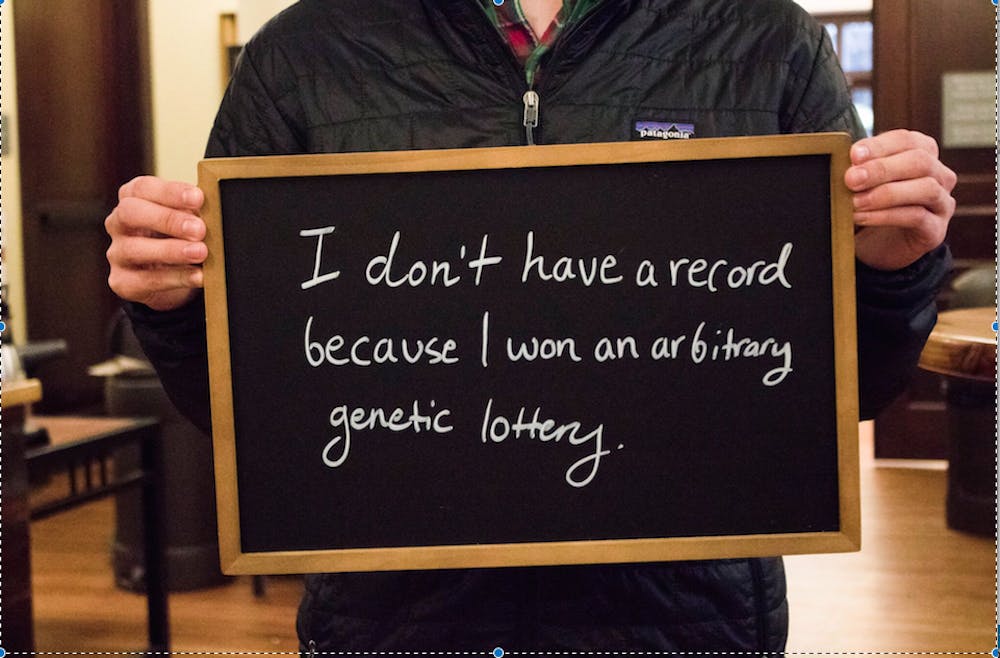Correction: An earlier version of this story incorrectly stated that Aramark has a checkable box on its application about whether an applicant has a criminal record. This is not true. The Daily Tar Heel apologizes for the error.
The Criminal Justice Awareness and Action group held a series of events this week to challenge students to consider how a criminal record can change a person's life.
“Probably everyone has committed something that they could have been convicted for, they just haven’t been caught,” said sophomore Sarah Mackenzie, awareness and policy chair for the CJAA.
For the past three years, this student-run subcommittee of the Campus Y has held a weeklong series devoted to a theme in criminal justice. The theme of this year’s Criminal Reform Advocacy Week frames the stigma placed on those who have been convicted of crimes and the life-long consequences they face.
“Our theme this year is called the myth of the criminal, and it’s to emphasize that we place certain identifiers on what it means to be a criminal without really thinking about why we’re doing that,” Mackenzie said. “We set up a series of events to question why we label people as criminals, and why we’re so quick to cast them out of society.”
The week consists of a string of daily speaker events on different topics related to the broader theme. Some of the notable speakers were Darryl Howard, who served 21 years in prison for a crime he did not commit, as well as N.C. Rep. Marcia Morey, D-Durham, a strong activist for juvenile justice reform.
“Representative Morey was a judge in Durham, and she created a diversion program for people under 21 who had misdemeanors,” said first-year Valerie Lucas, who attended the event. “It was more a rehabilitation program than simply punishment, so it wouldn't affect people's lives. (Morey) felt that some of the crimes people were getting arrested for weren’t justified as far as punishments went.”
Lucas said she felt the justice system often underestimates criminals because the general public feels they lack the ability to change. She said that often one’s own privilege can cloud their ability to accept that they too are criminals.
“My favorite thing that we’ve been doing is Pit-sitting with the We Are All Criminals organization where we sit in the pit and ask people to put beans in jars for each crime they've committed and gotten away with,” Lucas said. “Most UNC students are really privileged and have gotten away with a lot of things.”




